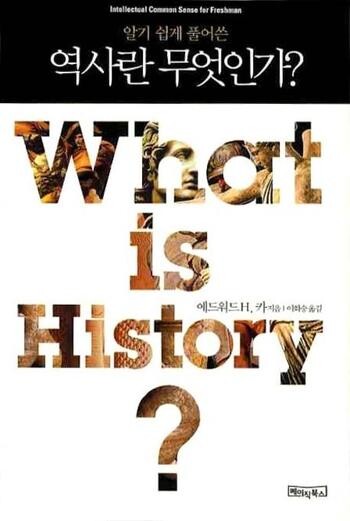hankyoreh
Links to other country sites 다른 나라 사이트 링크
Man acquitted, 30 years later, for “subversive books” on capitalism and revolution

A man who served 30 months in prison for reading “subversive books” in the 1980s has been belatedly acquitted, three decades later.
Judge Byeon Min-seon of the Seoul Northern District Court’s fifth division rendered a not-guilty ruling on Nov. 25 in the retrial of a 53-year-old surnamed Kim who had his prison sentence for violating the National Security Law upheld by the Supreme Court in 1982.
Kim was a student at Kyung Hee University in June 1981, the year after the so-called “Seoul Spring,” when he was arrested without warrant for anti-government activities and aiding North Korea for joining the Democratic Students’ League (DSL), which had been classified as an anti-government organization.
Kim was subjected to torture during his illegal detention before eventually confessing to “aiding the enemy.” But the only evidence presented by prosecutors in his case was a confession extracted under torture and his collection of books. The bill of indictment listed a number of them as “printed matter aiding the enemy,” including E. H. Carr‘s “The Russian Revolution,” Maurice Dobb’s “Capitalism Yesterday and Today,” Erich Fromm‘s “Socialist Humanism”, and Paul Sweezy’s “Theory of Capitalist Development.”
Kim denied the charges throughout the trial, but was found guilty. His verdict was later upheld by the Supreme Court.
In 2009, the Truth and Reconciliation Commission concluded that illegal detention and torture had been used in the DSL case. The Supreme Court later exonerated defendants or dismissed charges in a 2012 retrial requested by the victims.
Kim separately requested a retrial, and the court arrived at a similar conclusion.
“The books claimed by the prosecution as evidence do not appear to have any connection to North Korea and are normal publications by publishing companies,” the court ruled.
“Indeed, books such as Carr’s ’What Is History?‘ and former Heungsadan Society chairman Ahn Byung-wook’s ‘Ahn Chang-ho’s Thought’ were described as crucial books in the defendant’s conscientization process,” it continued. “Freedom of thought must be widely recognized in the Republic of Korea, a country that aspires to modern democracy.”
In a striking departure from normal practice, the judge added an apology to the end of the ruling.
“I apology for the judiciary’s failure to honor its role as the last bulwark of human rights under the authoritarian administrations of the past,” it read.
The books included on the list of “printed matter aiding the enemy” thirty years ago are still included on a 2014 list developed by police from previous Supreme Court rulings.
By Lee Jae-uk, staff reporter
Please direct questions or comments to [english@hani.co.kr]

Editorial・opinion
![[Column] Park Geun-hye déjà vu in Yoon Suk-yeol [Column] Park Geun-hye déjà vu in Yoon Suk-yeol](https://flexible.img.hani.co.kr/flexible/normal/500/300/imgdb/original/2024/0424/651713945113788.jpg) [Column] Park Geun-hye déjà vu in Yoon Suk-yeol
[Column] Park Geun-hye déjà vu in Yoon Suk-yeol![[Editorial] New weight of N. Korea’s nuclear threats makes dialogue all the more urgent [Editorial] New weight of N. Korea’s nuclear threats makes dialogue all the more urgent](https://flexible.img.hani.co.kr/flexible/normal/500/300/imgdb/original/2024/0424/7317139454662664.jpg) [Editorial] New weight of N. Korea’s nuclear threats makes dialogue all the more urgent
[Editorial] New weight of N. Korea’s nuclear threats makes dialogue all the more urgent- [Guest essay] The real reason Korea’s new right wants to dub Rhee a founding father
- [Column] ‘Choson’: Is it time we start referring to N. Korea in its own terms?
- [Editorial] Japan’s rewriting of history with Korea has gone too far
- [Column] The president’s questionable capacity for dialogue
- [Column] Are chaebol firms just pizza pies for families to divvy up as they please?
- [Column] Has Korea, too, crossed the Rubicon on China?
- [Correspondent’s column] In Japan’s alliance with US, echoes of its past alliances with UK
- [Editorial] Does Yoon think the Korean public is wrong?
Most viewed articles
- 1[Column] Park Geun-hye déjà vu in Yoon Suk-yeol
- 2Will NewJeans end up collateral damage in internal feud at K-pop juggernaut Hybe?
- 3The dream K-drama boyfriend stealing hearts and screens in Japan
- 4Thursday to mark start of resignations by senior doctors amid standoff with government
- 5Why Korea shouldn’t welcome Japan’s newly beefed up defense cooperation with US
- 6[Guest essay] The real reason Korea’s new right wants to dub Rhee a founding father
- 7N. Korean hackers breached 10 defense contractors in South for months, police say
- 8[Editorial] New weight of N. Korea’s nuclear threats makes dialogue all the more urgent
- 9Up-and-coming Indonesian group StarBe spills what it learned during K-pop training in Seoul
- 10Terry Anderson, AP reporter who informed world of massacre in Gwangju, dies at 76